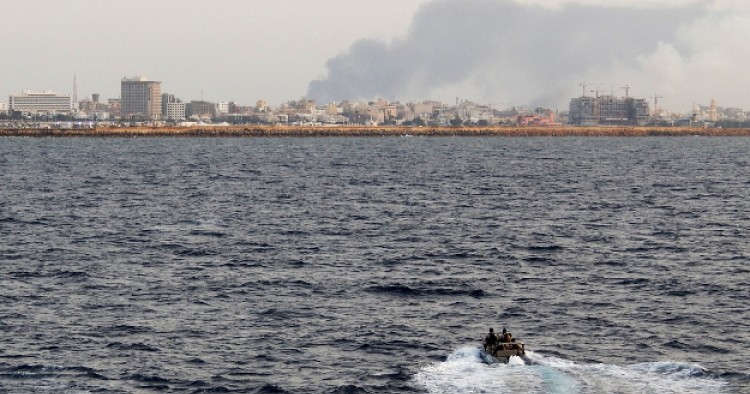This article was first published on LobeLog.
While the world’s attention is focused elsewhere, Libya continues descending into ever-greater chaos, with Islamist militants now holding the upper hand. The longer this writhing maelstrom remains on the global back burner, the higher the chances of an even more problematic challenge ahead. Already, the near total absence of central authority in the country has created a security vacuum providing rogue elements with the opportunity to prosper and expand, with the very real possibility of more menacing newcomers setting up shop.
The Libyan national parliamentary elections in June, hailed as a step toward stability by many in the West, produced the opposite. Instead of one exceedingly weak parliament ruling only fragments of the country, there is an almost helpless parliament, a renegade rival parliament, and armed Islamists seizing control of the capital, Tripoli, along with extremists securing much of the country’s second largest city, Benghazi. With the US and NATO having squandered earlier opportunities for robust diplomatic intervention and now preoccupied with the group that calls itself the Islamic State in Syria and Iraq, Libya’s fate is as uncertain as ever.
Political Failures
Even many Libyans placed great hope in the June 2014 elections replacing the interim General National Congress (GNC) with a permanent House of Representatives (HOR). Islamists who held a modest advantage in the GNC saw that vanish when secular nationalists gained a majority in the HOR. The election was held despite rising instability that would define Libya in the election’s wake. One warning sign was the sharply lower turnout of only 45 percent of Libyan registered voters, signaling that even as the final parliamentary goal had been attained, many had already given up on the deeply troubled political process.
A crippling problem all along has been the absence of a substantial, highly skilled, well-educated civil society (stunted under Muammar Qadhafi’s 40-plus years of highly personalized, incompetent, divisive, and suffocating rule). Making matters worse has been the flight of many of the limited numbers of Libyans able to fulfill such a role, either because of ongoing violence and crime or even minor connections to the former regime.
Continue reading on LobeLog.
The Middle East Institute (MEI) is an independent, non-partisan, non-for-profit, educational organization. It does not engage in advocacy and its scholars’ opinions are their own. MEI welcomes financial donations, but retains sole editorial control over its work and its publications reflect only the authors’ views. For a listing of MEI donors, please click here.












